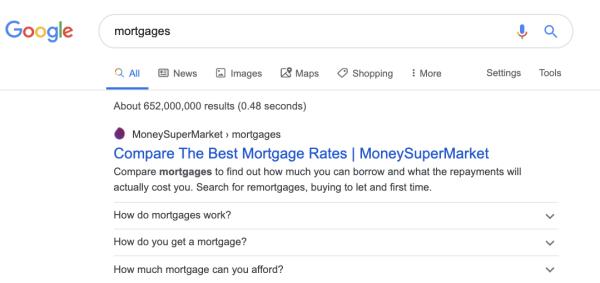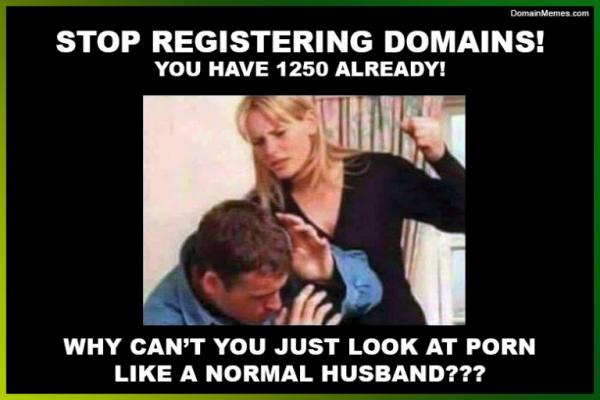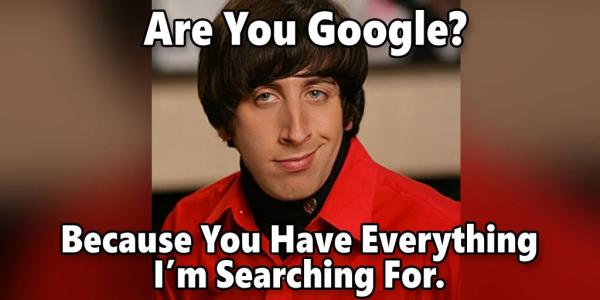Google tries new ways to devour the Web?
An evil experiment to embed the whole Web inside Google?
A few days ago, a Reddit user reported what seems to be a Google experiment to remove URLs entirely from its search results:

<u><em><strong>CAPTION:</strong>
<a href="/img/google-killing-urls.png" target="_blank">Click for full, high-resolution screenshot</a>
</em></u>
This is an excerpt of that Reddit discussion. I am publishing it as a summary of the effect a move like that may have, because I think everybody, not just nerds, should be more aware of how certain company strategies can influence their lives.
The possible consequences…
… if this Google test becomes the norm:
Confusion
- [This move by Google] might add a bit of confusion as to who’s the real site if you can get results like to show when you’re trying to rank for someone else’s brand name.
- [This may bring] a substantial loss of quality content and differentiation that would massively slow one’s ability to do quick diligent research that often involves 5-6 pages of results.
Geographic confusion

The geographical location part is huge for me. As a Brit I often want UK results not USA ones and being able to see the domains themselves often lets me filter like that.
Lack of transparency
I’m not so much worried about phishing as I am about the complete lack of a way to distinguish paid ads from ranked sites. This will turn Google into a “sponsored links” directory where you have to outbid your competitor every day or lose traffic even for searches with your brand.
Slowness
The brain can parse without thinking/explicitly reading aloud quite nicely [if the full URL is visible]: I can automatically validate the domain, the subtopic, perhaps the geographical location, the reputation score I automatically assign, etc. with multiple results all very quickly.
Making all top domains the same
In the long run, this will make users not trust a (possibly fake, bogus) domain more than a valuable one, only because the first ends with one of the traditional Top Level Domains like .com or .net. Or, as said on Slashdot, “this is going to devalue the perceived “vanity” of any particular url, which is good in a climate where basically any URL is taken”.
And the possible reasons for it
The AMP evil, again
This is all about Accelerated Mobile Pages (AMP) and how Google wants to merge them into many Internet functions. AMP, in email, for example, means emails are no longer static things. They can go away, after you fetch them (compare this with my own reasons to NOT accept AMP).
Tracking, again
Notice how it is getting slowert to get a link on mobile? Instead, you get an interface for sharing? That tracks how and what was shared as well as provides for link modification that a plain text copy paste does not.
More power grab by Google

This is Google trying to make it look like the content is theirs.
They’re trying to kill URLs generally and make their service the access point to content rather than anything else (also see: AMP).
They even reduced the contrast of the titles so they could use their brand color.
Essentially the idea here is you want to use google for search, search IS google. It’s the equivalent of those built-in buttons for Amazon, Netflix etc… that you see on your TV remotes that companies pay for. This is google making their remote, with only one button.
Q: [If this becomes a standard], how’s Google going to keep phishing sites from using the names of the businesses they’re trying to impersonate?
**A:**They’re not going to keep phishing sites from using the names of businesses they’re trying to impersonate. They’re going to make money from it.
Now, this may happen…
… and it may not. But do take a moment to compare all these comments and hypotheses with what I reported here about one month ago. And try to use DuckDuckGo instead of Google as much as you can, to imagine what your world could be like without Google.
Image sources: “What Is My IP Address” and “Domain Gang
Who writes this, why, and how to help
I am Marco Fioretti, tech writer and aspiring polymath doing human-digital research and popularization.
I do it because YOUR civil rights and the quality of YOUR life depend every year more on how software is used AROUND you.
To this end, I have already shared more than a million words on this blog, without any paywall or user tracking, and am sharing the next million through a newsletter, also without any paywall.
The more direct support I get, the more I can continue to inform for free parents, teachers, decision makers, and everybody else who should know more stuff like this. You can support me with paid subscriptions to my newsletter, donations via PayPal (mfioretti@nexaima.net) or LiberaPay, or in any of the other ways listed here.THANKS for your support!